Photographs: Reuters. Priyanka Sharma and Indulekha Aravind
It is both bold and subtle. Sexual harassment in office or outside is a reality for most women. India Inc needs to respond better to their concerns, writes Priyanka Sharma and Indulekha Aravind.
Protests against rape and molestation of women have swept the country after the heinous rape of a 23-year-old girl in New Delhi on December 16.
There have been marches, candlelight vigils and demonstrations. Industry association Ficci set up a taskforce on safety for women which will work towards developing a National Safety Policy for Women to be adopted by the industry.
Yet, a few days after the horrific incident, an office cab of a prominent management company carrying four women was stranded in a dark alley in Noida.
Blocking their way were four inebriated men who leered, intimidated and even tried to attack the women. This went on for over ten minutes.
The unarmed security guard in the cab was helpless and simply waited for the men to stop. The goons dispersed only when another cab drove into the alley.
The company responded by making it mandatory for all cabs to leave together. This was hugely inconvenient for those whose shifts ended early. But this is the price they have to pay for reaching home safe.
(Shine Jacob in Kolkata and Ranjita Ganesan in Mumbai contributed to the article).
Are women employees safe in India?
Photographs: Reuters.
Unending sexual harassment, indeed every time she steps out of home, has become a fact of life for working women. A 2011-12 poll carried out by Oxfam found that 17 per cent of women have faced at least one instance of sexual harassment at work.
Fear and shame make underreporting a very real possibility, so the actual numbers could be higher.
A survey submitted to the National Commission for Women on the nature, incidence, extent and impact of sexual harassment of women at the workplace in Maharashtra reported that 37 per cent of the respondents had been victims of sexual harassment at their workplace.
"Safe City Free of Violence for Women and Girls", a survey conducted by the Department of Women and Child Development, Jagori (an NGO supporting women's safety), the United Nations Development Fund for Women South Asia and UN Habitat shows that sexual harassment of women is the biggest factor that renders Delhi unsafe.
...
Are women employees safe in India?
According to the survey, based on a sample of 5,010 women and men in the capital, conducted during January-March 2010, 85.4 per cent women, 87 per cent men and 93 per cent common witnesses say sexual harassment is rampant in public places.
And sexual harassment is at times so subtle and intangible that women often second-guess themselves, believing themselves to be "hyper-sensitive".
It can be a suggestive tone of voice or double-meaning jokes, says Nirmala Menon, founder and CEO of Bangalore-based Interweave Consulting, a firm that advises organisations on diversity management.
"Comments like "you look sexy" or "did you see that movie" [when the movie has sexually explicit content] can make a woman squirm," says Menon.
To prepare the content for the Chitrangada Singh-Arjun Rampal starrer Inkaar, which deals with the issue of sexual harassment at workplaces, producer Viacom 18 Motion Pictures has reportedly conducted an in-depth survey, investing nearly Rs 2 crore to understand employee behaviour in such sensitive situations. And the findings, says director Sudhir Mishra, were nothing short of shocking.
...
Are women employees safe in India?
Photographs: Reuters.
"Most companies, unfortunately, are run by patriarchs. Women's complaints and discomfort with certain overtures are often labelled 'frivolous'," says he.
For all their recent posturing against sexual abuse of women, the country's lawmakers are yet to make the Sexual Harassment of Women at Workplace (Prevention, Prohibition and Redressal) Bill, 2012 into an Act.
It was passed by the Lok Sabha last September amid the din over the coal scam but has not yet been cleared by the Rajya Sabha. In the absence of any legislation, it is the Supreme Court guidelines in Vishaka and others Vs State of Rajasthan in 1997, issued in response to a plea by various organisations against the acquittal of five men who had raped social worker Bhanwari Devi, that are currently supposed to be implemented at every workplace.
These guidelines define sexual harassment, lay down the preventive steps establishments are supposed to undertake (such as displaying and circulating notices prohibiting sexual harassment), and call for a complaint mechanism to address grievances.
Every employer is required to constitute an internal complaints committee at each office or branch with 10 or more employees headed by a woman and not less than half of its members should be women.
...
Are women employees safe in India?
Photographs: Reuters.
Yet, the proposed law has loopholes. Section 10(1) of the Bill recommends 'conciliation' between the complainant and the accused as a first step after a complaint.
"This is absolutely unacceptable," says All India Progressive Women's Association Secretary Kavita Krishnan. "Also, Section 14 of the Bill penalises women for filing 'false complaints'. This will deter women from filing complaints in the first place when sexual harassment is already highly underreported."
While anti-sexual harassment committees work fairly well in some cases, Krishnan laments that in many instances the committee is only nominally autonomous from the employer's interests, and is packed with members who are eager to bury the complaint and discourage the complainant.
The Oxfam survey found that in 96 of the 121 incidents of sexual harassment respondents mentioned, victims did not take any formal action against the perpetrator mainly because of the fear of a stigma.
...
Are women employees safe in India?
Photographs: Reuters.
A woman employed in a senior capacity at a BPO recently approached Krishnan: she had been facing sexual harassment from the security head at her company.
There was no complaints body at her BPO, and she was reluctant to file a police complaint because she feared she would not only lose her job, but be marked as a "troublemaker" and, therefore, become unemployable in other BPOs too.
Another woman employee at a Delhi company complained that her boss made suggestive remarks, made her stay late at the office, asked her to dress in clothes of his choice, and began insisting that she accompany him on out-of-Delhi trips.
"On one such occasion when she had been made to stay late, she protested, and was allowed to leave the premises by the guard and the boss only after she accepted her severance cheque, which was far less than her due. Again, at the end of the day, she did not file a formal police complaint because she felt her family would be embarrassed," says Krishnan.
...
Are women employees safe in India?
Photographs: Reuters.
At times, exigencies of business cause sexual harassment to be hushed up. Media professional Preeti Lakhani (name changed) was sent out of town by her magazine on an advertorial assignment.
There, the 26-year-old exchanged numbers with a marketing executive at the client's office as they would have to coordinate for some weeks until the assignment was completed. "The man used to text me off and on. I hardly bothered to reply to any of them," the Delhi resident says.
"On my last visit, he abruptly gave me a too-tight hug, to which I just could not react and then, just as I thought it was over, he ended up kissing me on my cheek." Lakhani, who ran from there, soon informed her editor about the incident.
"He just asked me to forget it. After all, (the executive) was supplying us with an advertisement worth lakhs!"
...
Are women employees safe in India?
Photographs: Reuters.
There's another angle: members who probe cases of sexual harassment tend to underplay it to keep the corner office happy.
Audrey D'mello, coordinator of legal services at Majlis, a Mumbai-based women's rights group, says people on the sexual harassment committee from within the company are usually wary of giving judgments against seniors. They, therefore, demand a high level of evidence that cannot always be produced in such cases.
Supreme Court lawyer Pinky Anand adds that companies prefer to resolve such cases internally and discourage taking the matter to court in order to protect the reputation of the company.
...
Are women employees safe in India?
Photographs: Reuters.
Even when action is taken, offenders get off with just a rap on the wrist. While at a party organised by the television channel she worked for in Mumbai, Aditi Kumar (name changed) was groped and assaulted publicly by a junior colleague. Incensed, she decided to take the matter up with the administration.
"I was warned by male colleagues that if I complained, I would be labelled the resident bitch or troublemaker," she remembers. In a few days, in an uneasy interrogation by a senior human resources functionary - a woman - Kumar was made to recount every harrowing and uncomfortable detail of the night.
"She even asked me what I was wearing and if I shared a relationship with the man, almost suggesting that these were excuses for the act," she says.
The man wasn't fired; he was asked to resign. A few years later, at another channel, when Kumar resisted the suggestive remarks and lewd comments made by her boss (who had made passes at three other women as well), her work began to suffer - he delayed her payments, excluded her from important discussions and insulted her. While she left the channel, he continued to work for it for another two years.
...
Are women employees safe in India?
Photographs: Reuters.
It is difficult to say if companies have tightened security and safety measures in and around offices. According to a report in The Times of India, Karnataka's labour department received over 700 complaints of sexual harassment "unofficially" from the infotech, infotech-enabled services and biotech sectors in Bangalore last year.
That works out to almost two complaints a day. Additional Labour Commissioner J T Jinkalappa says most of the complaints were from the services sector because few women are employed in manufacturing. One officer says it could also be because women in the IT sector are good-looking and rich, compared to their counterparts in manufacturing!
Large employers like Genpact and Cognizant refused to be a part of this artic#8804 Airtel declined to comment on its safety and sexual harassment policies.
Kolkata-based Emami, a maker of cosmetics for women among other consumer goods, does not have any anti-sexual harassment committee in place. "Because of the higher moral value that the group follows, we have never faced any such instance of sexual harassment here," says a senior woman official from the company.
Are women employees safe in India?
Photographs: Reuters.
Wipro encourages all employees to take an online training module on prevention of sexual harassment and spreads awareness through communication campaigns and focused sessions.
Infosys says it communicates its policy, which is in sync with the Vishaka guidelines, through various programmes such as classroom sessions, e-learning programmes, poster campaigns and regular mails.
To tackle harassment or assault outside office, Mahindra Satyam has developed a mobile phone app called FightBack for its employees which allows the user to alert at least five chosen contacts when threatened with sexual assault with the press of a single button.
At Chairman Anand Mahindra's behest, the app has now been made available to women outside the company.
...
Are women employees safe in India?
Photographs: Reuters.
In spite of several mishaps, companies remain callous about safe transport for women. In the wake of the rape of a 30-year-old BPO employee in 2010, the Delhi Police issued a notice to all corporate houses in the city and its suburbs that the cab drivers will have to drop the female employee at the door of her residence; if the route is not motorable, a security guard, to be present in all cabs, will have to accompany the female employee to her house.
Yet, these guidelines have not been followed through in most companies. There are other insensitivities as well. When Arunima Ghosh (name changed), a former employee of a multinational bank in Bangalore, complained of unsafe routes taken by the cab driver at night to avoid traffic, the bank's transport supervisor inquired about the distance of her house from the office.
When she said she lived 5 km away, he said: "We can't register your complaint right now because the software doesn't accept kilometres. We need the distance in miles."
Humiliated and stunned, Ghosh chose to walk away.

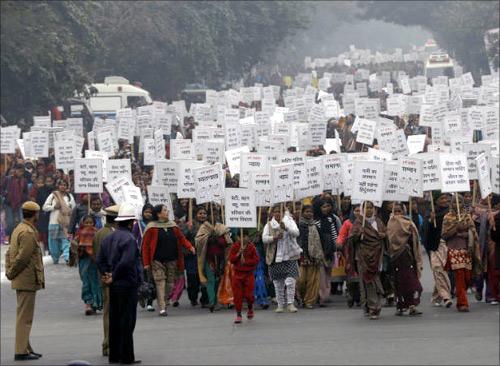
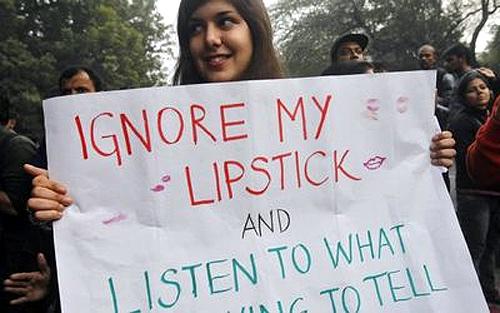
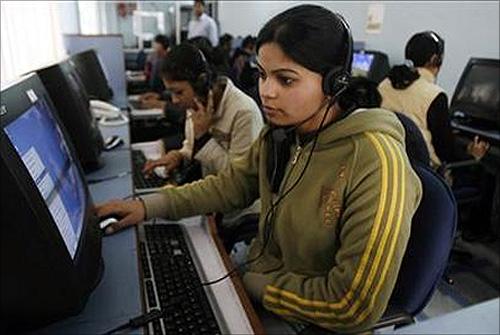


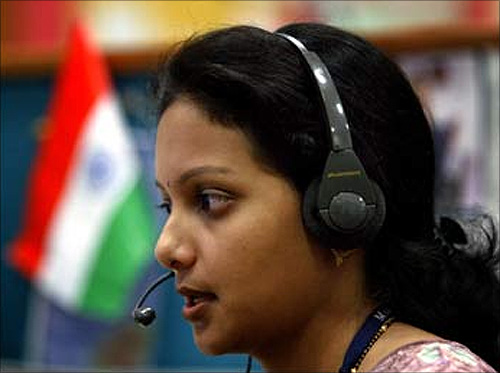
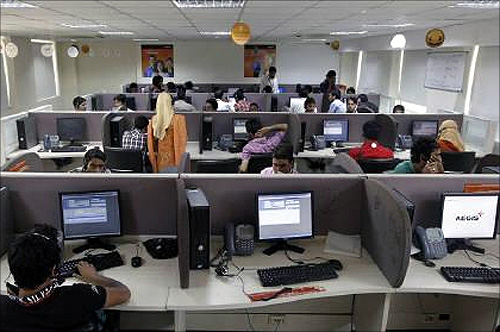
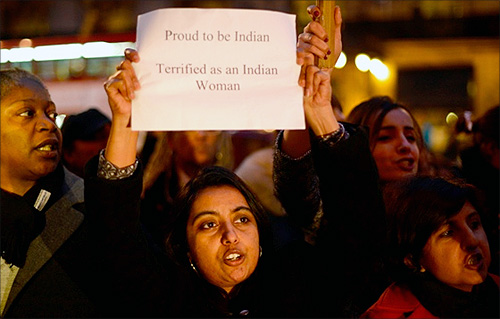
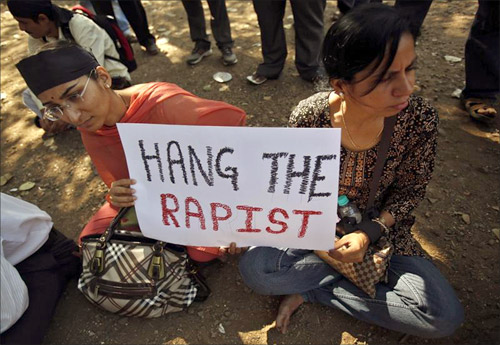
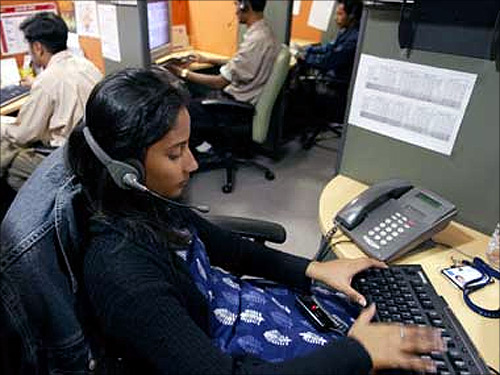

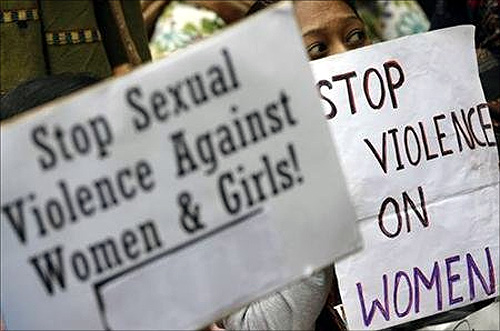

article